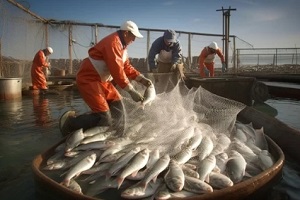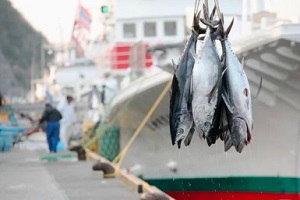 As an emerging company in the commercial fishing industry, obtaining adequate insurance coverage for your vessels and operations is a crucial first step.
As an emerging company in the commercial fishing industry, obtaining adequate insurance coverage for your vessels and operations is a crucial first step.
Compliance with all applicable regulations and requirements is key to securing the necessary policies and coverage limits. Adhering to just a few pivotal compliance essentials can make the difference between smooth insurance approvals and denials of coverage.
This article will provide a high-level overview of the major compliance considerations when obtaining insurance for commercial fishing vessels.
Securing Proper Vessel Classification and Documentation
One of the initial steps to gaining coverage is having your vessel properly classified by a respected classification organization such as the American Bureau of Shipping (ABS).
Classification involves a comprehensive survey of the vessel by the society’s marine surveyors to verify that it satisfies design, construction, condition, and equipment standards. The society will issue a certificate confirming the vessel’s class rating.
Insurers almost universally require a valid class certificate to cover hulls and machinery. The certification verifies that the vessel meets the classification society’s structural and mechanical standards. Retaining classification also mandates undergoing periodic surveys and enacting any recommendations.
Proper documentation from the U.S. Coast Guard’s National Vessel Documentation Center is also required. This entails acquiring a Certificate of Documentation with a valid endorsement for the commercial fishing trade. Proper documentation assists in confirming the vessel’s ownership, dimensions, flag, and intended service.
Complying with Hull Insurance Underwriting Factors
When applying for hull coverage, disclosing precise details on your vessel’s construction, age, condition, equipment, and value is imperative for underwriters to evaluate risk and approve coverage. Hull policies warrant that your vessel is seaworthy and fit for its intended commercial fishing service.
To assist in exhibiting ongoing seaworthiness, periodic in-water surveys by a qualified marine surveyor are typically needed. Addressing any recommendations from annual or maintenance surveys promptly is wise. Maintaining proper maintenance and repair documentation will also be essential for coverage renewals.
Hull insurers also impose navigational limits on fishing vessels. The policy defines warranty operating areas based on the vessel’s specifications and class.
Fishing outside of those established limits can potentially void coverage. Monitoring gear and updating warrants for extended fishing grounds are critical.
Meeting Requirements for Protection & Indemnity Coverage
 Protection and indemnity (P&I) coverage provides vital liability coverage for fishing vessels, including injury to crew, pollution, and damage to third-party property. Several compliance areas are important when obtaining this coverage.
Protection and indemnity (P&I) coverage provides vital liability coverage for fishing vessels, including injury to crew, pollution, and damage to third-party property. Several compliance areas are important when obtaining this coverage.
First, valid captain licenses and training certifications need to be maintained. The Coast Guard must properly license captains for the vessel’s cargo and operating area. Other crew responsible for navigation or engineering may also require appropriate licenses or documents.
Adherence to Coast Guard and flag state requirements for safety equipment and maintenance is also essential. P&I underwriters will scrutinize equipment logs, maintenance records, crew drills, and requisite safety procedures. Lapsed inspections, expired equipment, or lack of crew drills may jeopardize coverage.
Finally, providing accurate details on your vessel’s area of operation, fishing methods, and port calls is critical when applying for coverage. P&I warrants are predicated on this key information, so notifying your underwriter regarding any changes is a must. Complying with all warranted limits is mandatory.
Abiding by Fishing Gear Policy Provisions
Complying with fishing gear policy warranties is also vital for fishing vessels and equipment. These include:
- Geographic limits where the insured gear can be utilized
- What types of gear are covered and excluded
- Requirements regarding gear maintenance and storage
- Crew supervision, security, and watchkeeping duties
- Necessary reporting, recordkeeping, and claims response duties
Violating these warranty clauses can severely restrict payouts if gear loss or damage occurs. Therefore, carefully examining policy warrants and designating accountable crew to follow them is essential to compliance.
Providing Complete Information When Applying
When applying for commercial fishing vessel policies, understand that underwriters will examine your business’s safety track record, management, and past claims experience. Companies without proper safety programs, crew oversight, repair and survey budgets, or regulatory compliance may be deemed higher insurance risks.
Lack of transparency when applying will also raise concerns. Furnishing accurate vessel values, conditions, equipment details, and operating areas is obligatory.
Material misrepresentations or omissions on applications can nullify policies entirely. Collaborating with an experienced marine insurance broker is advisable to ensure applications are prepared appropriately.
Preserving Your Coverage
The goal is not simply obtaining insurance initially but maintaining it long-term. Renewals necessitate satisfying flag state and hull and machinery classification society requirements. Performing regular annual or maintenance surveys and immediately addressing any recommendations is essential.
 In addition to surveys, sustaining your coverage relies on vigilance. This includes complying with all policy navigational limits, equipment, maintenance, crew, safety, and reporting stipulations. Notifying underwriters of meaningful changes in vessel ownership, condition, value, or usage jeopardizes coverage.
In addition to surveys, sustaining your coverage relies on vigilance. This includes complying with all policy navigational limits, equipment, maintenance, crew, safety, and reporting stipulations. Notifying underwriters of meaningful changes in vessel ownership, condition, value, or usage jeopardizes coverage.
Staying current on regulatory changes affecting your vessels and personnel is equally important for coverage continuity. As an emerging commercial fishing company, adherence to insurance compliance essentials is an ongoing priority.
Secure Insurance for Commercial Fishing Vessels with Assistance from JMG Insurance Agency
Obtaining and maintaining adequate insurance for your commercial fishing vessels involves adherence to numerous compliance requirements. While this may seem challenging initially, taking a methodical approach and working closely with your underwriters, brokers, and classification society will ensure you don’t overlook any essentials.
The JMG Insurance Agency team has extensive expertise in providing insurance for commercial fishing vessels. Our team is ready to guide you in understanding your operation’s compliance essentials. Contact us today at 1-844-304-7332 or online to start the process and keep your commercial fishing enterprise safely insured for the long haul.




